
You’ve probably passed through a busiest airport or two in your travels. But have you wondered which airports around the world handle the most passenger traffic every year? Well, buckle up your seatbelt and get ready for takeoff as we explore the top 10 busiest airports globally based on total passenger numbers.
From Atlanta to Dubai, these major transportation hubs give new meaning to the term “frequent flyer!” You’ll get an inside look at their astounding stats, learn what makes each location unique, and discover why they rank among the crème de la crème. With connections to every corner of the map, these busiest airports are the pulse points keeping our modern world linked.
Table of Contents
Airports are the lifeblood of modern travel, connecting people and cultures across vast distances. They serve as bustling hubs of activity, witnessing millions of arrivals and departures daily.
But with so many airports scattered across the globe, which ones reign supreme in terms of passenger traffic? Buckle up, frequent flyers, as we delve into the world’s top 10 busiest airports in 2024, based on total passengers.
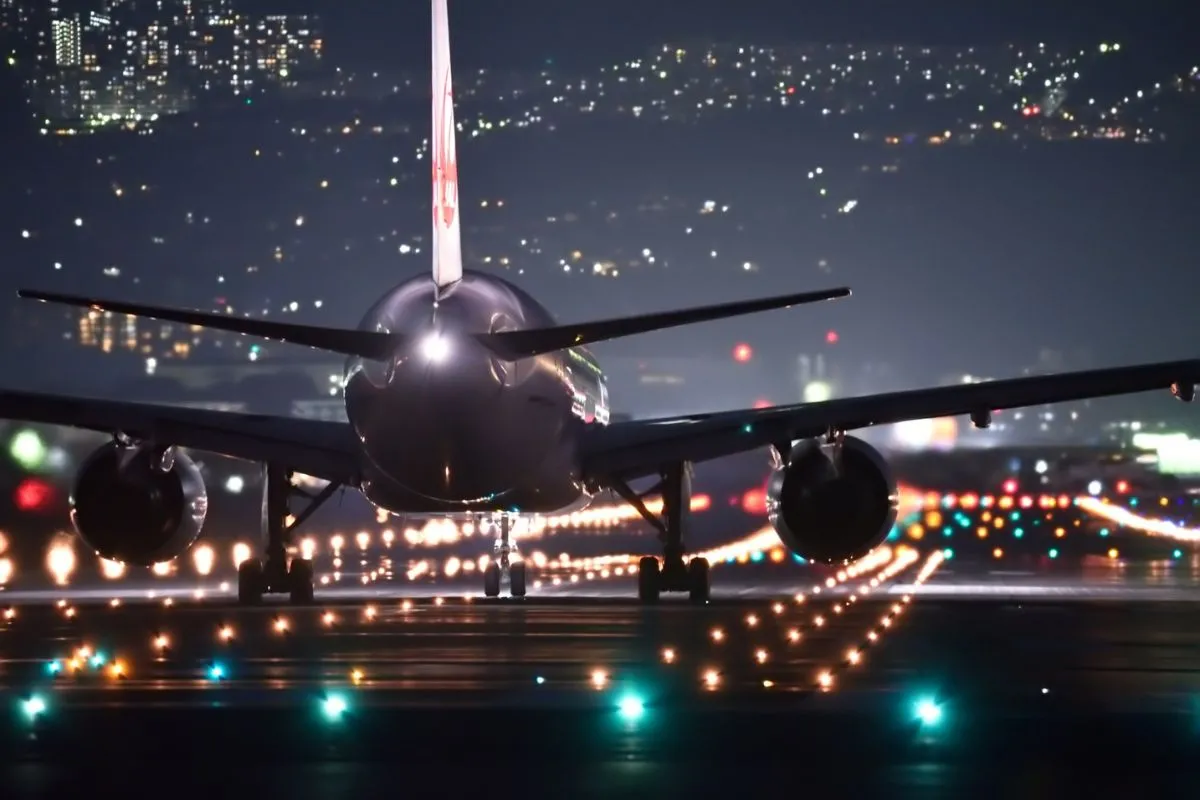
World’s Busiest Airports: Atlanta International Airport
Atlanta’s Hartsfield-Jackson International Airport (ATL) takes the coveted top spot, a position it has held (with a brief interruption in 2020) since 1998. Nicknamed “The ATL,” this behemoth boasts an impressive 104.6 million passengers in 2023.
This dominance can be attributed to several factors. Its strategic location within a two-hour flight of 80% of the US population makes it a prime connection hub for domestic travel. Additionally, Delta Air Lines, a major carrier, has its headquarters in Atlanta, further contributing to the airport’s prominence. As the busiest airport in the world, Atlanta’s Hartsfield-Jackson sees over 100 million passengers each year.
It has been the world’s busiest airport for passenger traffic for over 20 years. The airport serves as a major hub for Delta Air Lines and offers flights to over 150 U.S. destinations and more than 75 international destinations in 50 countries.

World’s Busiest Airports: Dubai International Airport
Dubai International Airport (DXB) in the United Arab Emirates holds the second position with a staggering 86.9 million passengers. As the busiest airport in Asia, DXB serves as a vital link between Europe, Africa, and Asia. Its impressive infrastructure includes the world’s biggest baggage handling system and boasts the second-largest building by floor area with its Terminal 3. With a focus on luxury travel and duty-free shopping, DXB caters to a global clientele seeking a seamless and opulent travel experience.
Dubai’s airport is a major international transit hub, connecting people travelling between the Americas, Europe, Asia and Africa. It sees nearly 90 million passengers annually and serves over 140 airlines flying to more than 240 destinations across six continents. The airport is home to Emirates, the largest airline in the Middle East. With its efficient operations, short connection times and amenities like lounges, showers and hotels, DXB makes long layovers more bearable.
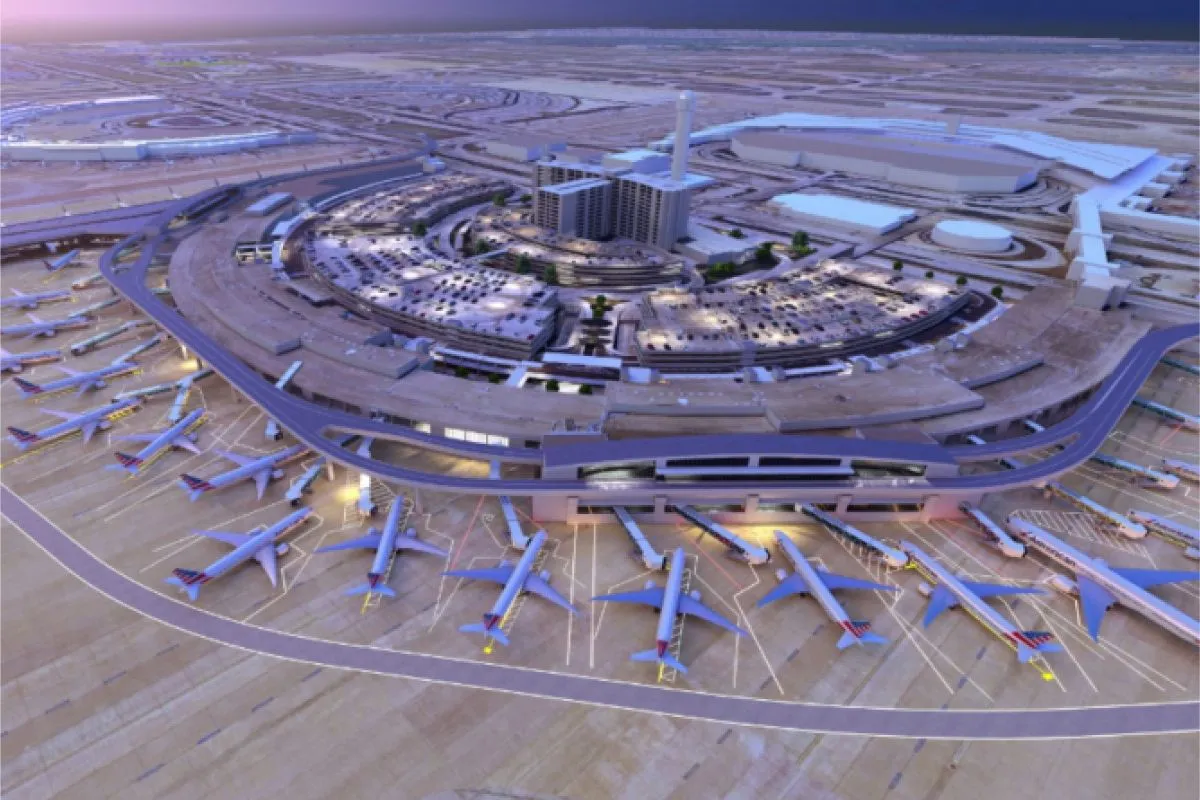
World’s Busiest Airports: Dallas International Airport
The third busiest airport, Dallas/Fort Worth International Airport (DFW) in Texas, handled a whopping 81.75 million passengers in 2023. DFW is another major hub for American Airlines, contributing significantly to its passenger volume. The airport boasts an extensive layout with six runways and five terminals, ensuring smooth operations despite the high traffic. Its efficient design minimizes connection times, making it an attractive option for travelers on the go.
The Dallas/Fort Worth airport serves over 65 million passengers each year, connecting people across the U.S. and to destinations around the world. It is American Airlines’ largest hub, offering nearly 900 daily flights to over 235 destinations worldwide. The airport spans 27 square miles, making it larger than the island of Manhattan. With its massive size comes efficiency, as it can handle over 2,000 aircraft departures and arrivals each day.
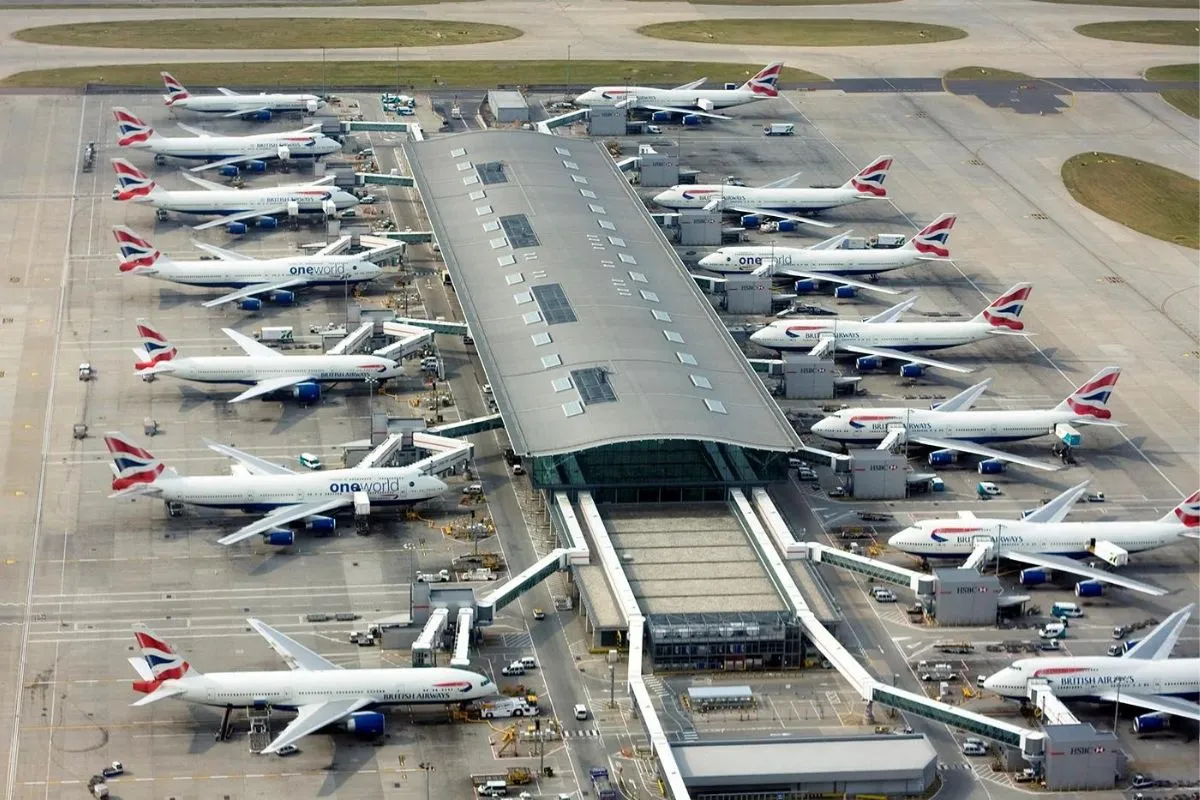
World’s Busiest Airports: London Heathrow International Airport
London Heathrow Airport (LHR) in the United Kingdom holds the fourth position with 79.2 million passengersa and serves 81 airlines flying to 204 destinations in 84 countries. . Heathrow remains a major connecting point for European and transatlantic travel, despite facing stiff competition from other European hubs. The airport is constantly undergoing modernization efforts to improve passenger experience and maintain its global standing.
The airport is the main hub for British Airways and Virgin Atlantic. Although Heathrow sometimes faces challenges like congestion and delays, expansion plans aim to increase its capacity to accommodate future growth in air travel demand. Heathrow offers flights to major cities across the Americas, Europe, Middle East, Asia, and Oceania.
The future of air travel holds both opportunities and challenges for the world’s busiest airports. By embracing innovation and sustainability, airports can meet the demands of a growing industry while reducing environmental impact. With their global connectivity, these massive hubs will continue uniting cultures and shaping the future of travel.
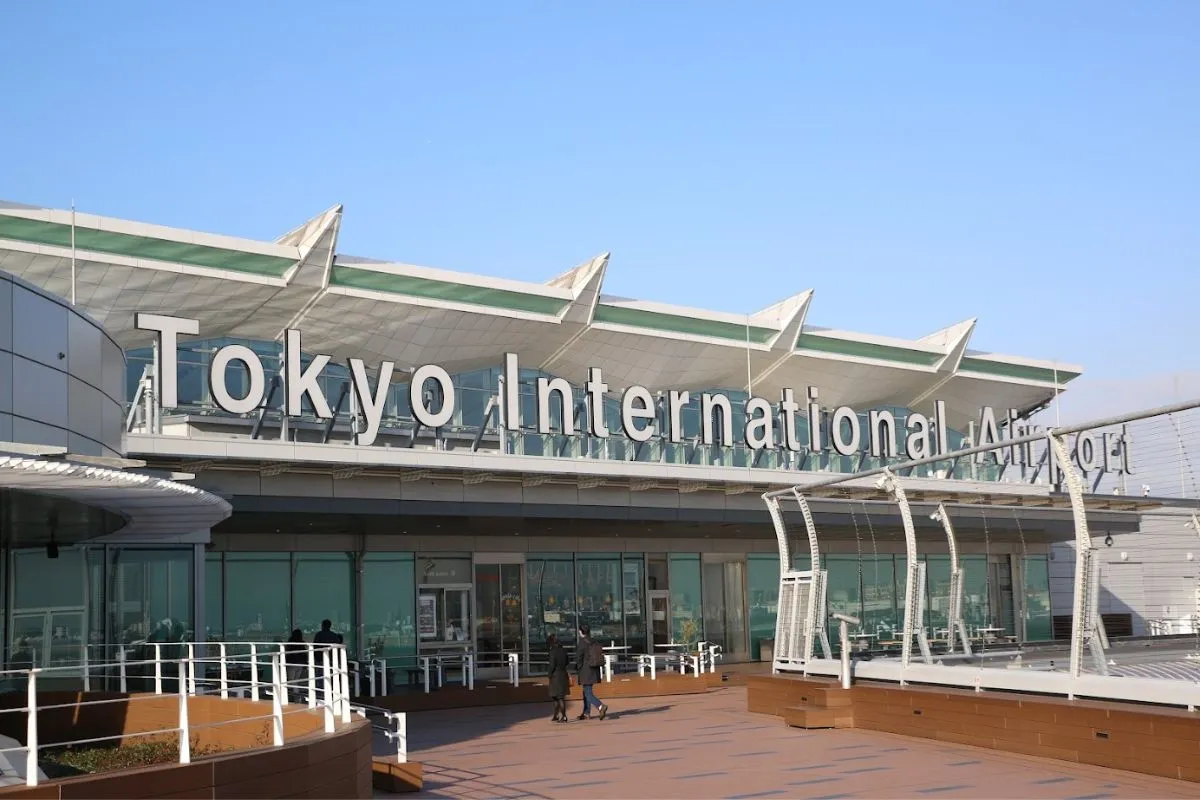
World’s Busiest Airports: Tokyo International Airport
Tokyo Haneda International Airport (HND) in Japan rounds out the top five with 78.7 million passengers. Haneda serves as the primary international gateway to Tokyo, Japan’s bustling capital city. The airport offers a blend of modern amenities and traditional Japanese hospitality, catering to both business and leisure travelers.
Its primary function initially was to serve the Tokyo area and handle almost all domestic flights. It now shares this role with Narita International Airport, which handles most international flights. Haneda Airport is managed by the Aviation Administration, the Ministry of Land, Infrastructure, Transport and Tourism, which operates the airport, and Japan Airport Terminal Co., Ltd. Which runs these stations.
Haneda Airport has since grown to include three passenger terminals and a VIP terminal. In 2009, it handled 62 million passengers, making it the second busiest airport in Asia. When the expansion is completed in October 2010, it is expected to be able to accommodate 90 million passengers. Haneda Airport is Japan’s third largest air cargo hub. The station is located next to the Tokyo Freight Terminal and has scheduled charging routes.
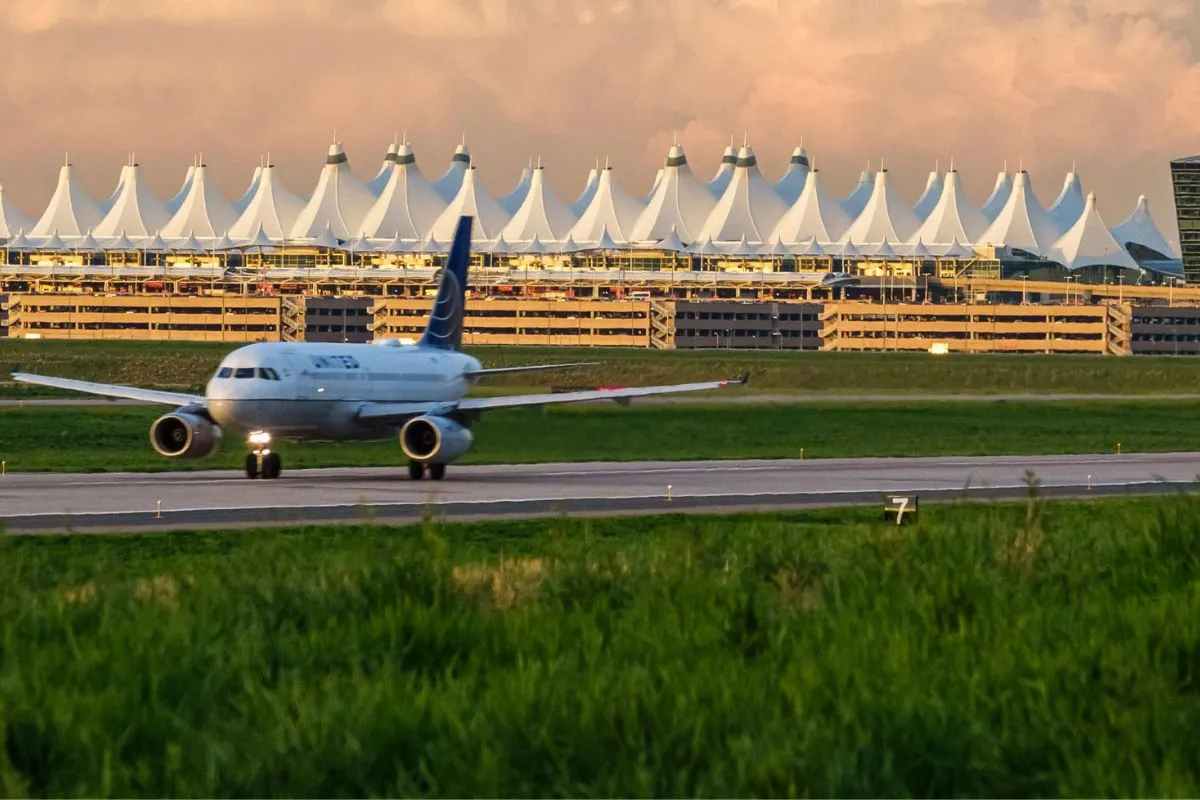
World’s Busiest Airports: Denver International Airport
Denver International Airport (IATA: DEN), known locally as DIA, is one of the busiest airports in the United States, behind Atlanta’s Hartsfield-Jackson, Dallas-Fort Worth, Los Angeles and Chicago O’Hare.
Additionally, Denver International Airport (DEN) in Colorado takes the sixth position with 77.8 million passengers. DEN’s strategic location makes it a popular hub for connecting flights between the west coast and the east coast of the United States. Additionally, Denver’s growing population and thriving economy contribute to the airport’s passenger traffic.
The company operates a large number of domestic, international and some transcontinental flights, serving not only the Denver metropolitan area but also the Front Range urban corridor. It is the largest airport in North America by land area. The airport is a major hub for United Airlines and Frontier Airlines and is the largest hub for Southwest Airlines. It has served more than 200 direct destinations since the mid-1990s, making it one of the few destinations in the world to hold this distinction.
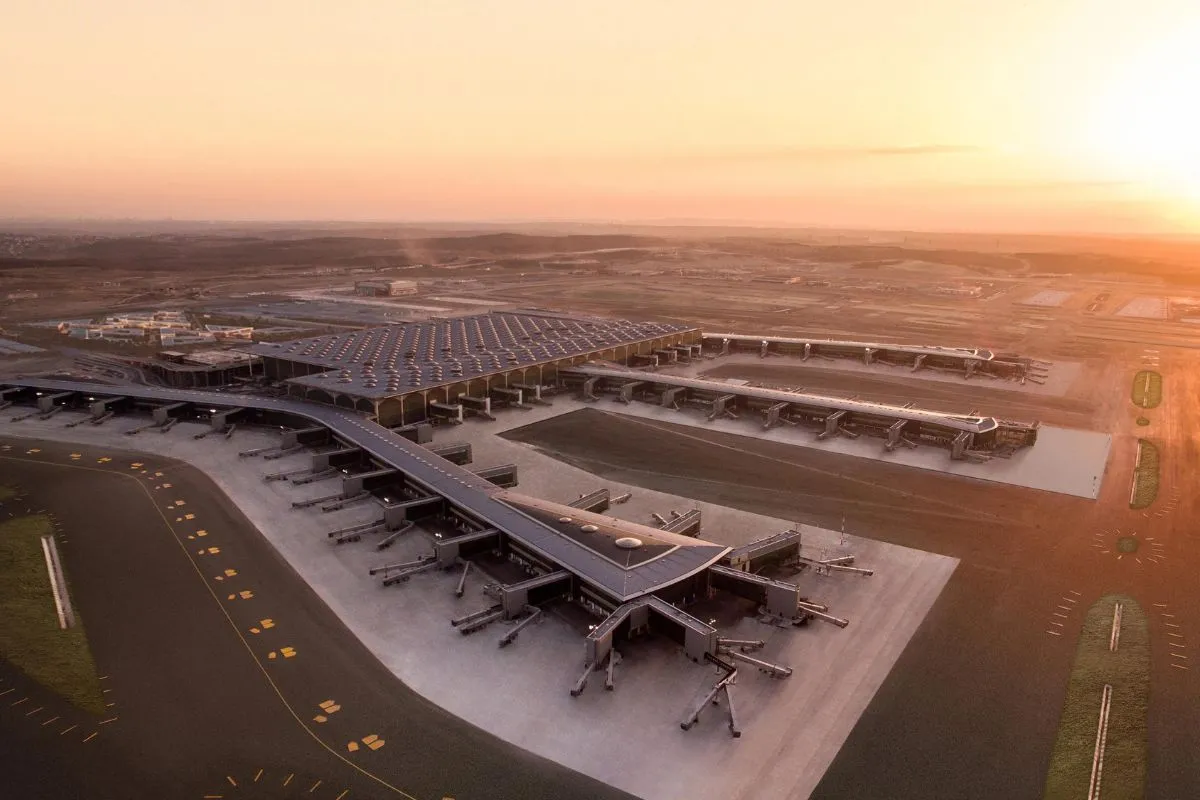
World’s Busiest Airports: Istanbul International Airport
Istanbul Airport (IST) in Turkey takes the seventh spot with 76 million passengers. This relatively new airport serves as a major hub for Turkish Airlines and offers connections to a vast network of destinations across Europe, Asia, and Africa. Its impressive architecture and state-of-the-art facilities make it a significant player in the global aviation landscape.
The new Istanbul Airport was officially opened by President Recep Tayyip Erdogan on October 29, 2018 and became operational in April 2019, replacing the old Ataturk Airport that was unable to meet demand due to the growth of Turkish Airlines.
Istanbul Airport, located 50 kilometers northwest of Arnavutkoy, will become the world’s busiest passenger airport, cementing Turkey’s position as the gateway to Europe and creating a bridge between East and West. It is already the largest airport building in the world, comparable in size to Manhattan in New York or Leicester Airport in the United Kingdom. While Atlanta’s Hartsfield-Jackson International Airport is the busiest airport in the world, serving 107 million passengers annually, Istanbul Airport is expected to serve 90 million passengers annually by 2027, when all phases are completed. The number will increase to 150 million.
Istanbul Airport has a large, modern terminal consisting of a departures level (Geden Yolcu Kati), an arrivals level (Celin Yolcu Kati) and a second, smaller terminal planned for 2025. There are several branches of the following banks and ATMs at four different locations within the terminal:
You’ll also find 44 prayer rooms and a 6,000-seat mosque is planned. Featuring two exhibition areas and a children’s play area, YOTEL Istanbul Airport Hotel is one of the largest airport hotels in the world with 451 rooms.
Istanbul Airport will host more than 100 airlines flying to more than 300 destinations. Turkish Airlines currently flies to 300 destinations in more than 120 countries and carried more than 75 million passengers in 2018.

World’s Busiest Airports: Los Angeles International Airport
Los Angeles International Airport (LAX) in California holds the eighth position with 75 million passengers. LAX serves as a major gateway to the western United States and a popular destination for both domestic and international travellers. Hollywood’s proximity contributes to the airport’s glamour, attracting celebrities and tourists alike.
Los Angeles Airport (LAX) is California’s largest airport, with millions of passengers passing through its gates each year. Los Angeles International Airport (LAX) is one of the busiest airports in the world, with thousands of flights arriving and departing each year from the southern coast of California. Los Angeles is only 15 miles (24 kilometres) from LAX and is connected by numerous rail and road links.
LAX’s nine terminals house an impressive array of shops and restaurants, offering all the services travellers expect from a modern international airport. Los Angeles International Airport is the base for millions of visitors travelling to destinations in California, North America, and around the world. It also serves as the central cargo hub for the Southern California region.
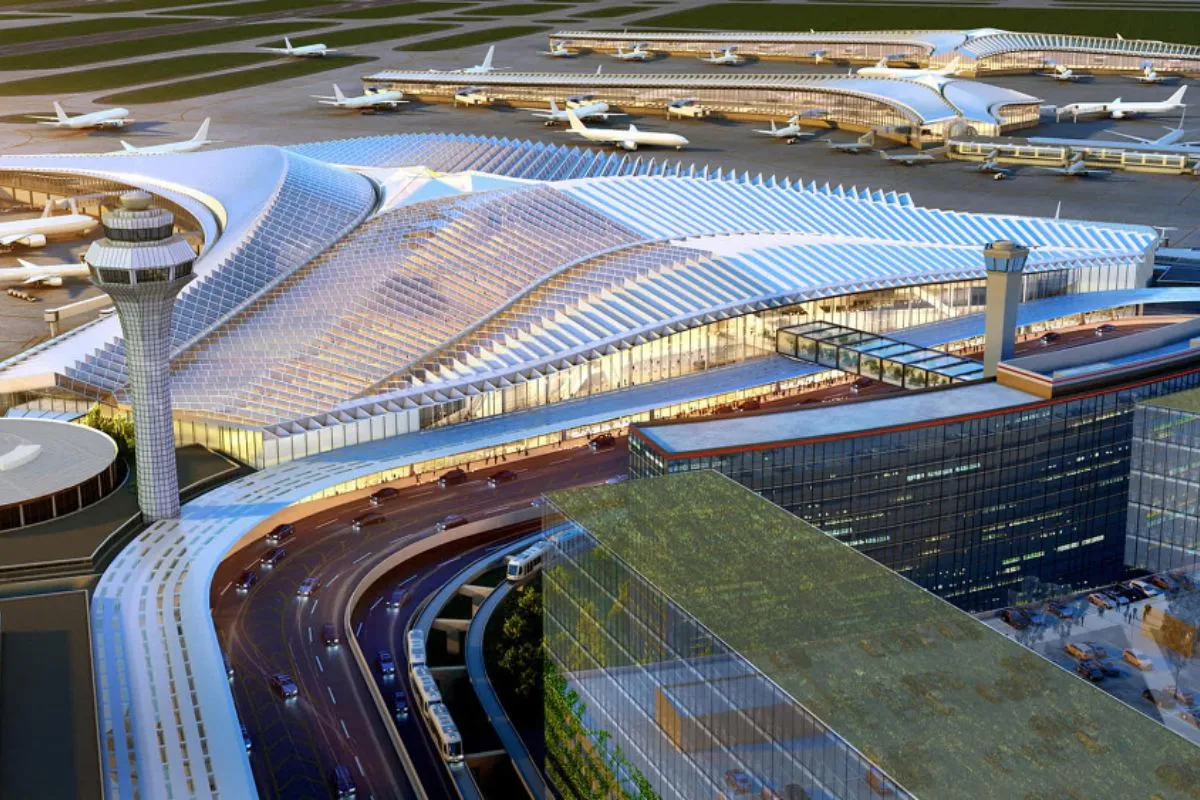
World’s Busiest Airports: Chicago International Airport
Chicago O’Hare International Airport (ORD) takes the ninth spot with 74 million passengers. ORD serves as a major hub for United Airlines and American Airlines, contributing significantly to its passenger volume. While known for occasional delays due to weather conditions, the airport continues to be a vital transportation link for the Midwest region.
The airport is open 24 hours a day and has 4 terminals (1, 2, 3, and 5). These areas are connected by the ATS people mover system and free bus service. Transfer services include all stations, economy car parks (E, G, H), multimedia facilities for Group F and rental cars, and Metra O’Hare Transfer Station.
The airport features free and unlimited Wi-Fi, banking services, charging stations for electronic devices, dedicated spaces for breastfeeding mothers, conference rooms, workspaces, chapels, passenger pagers, animal relief areas, medical centers, yoga studios and gyms. T1 and T3 house the spa, Hilton Arena and swimming pool, postal service, tourist information and travel assistance.
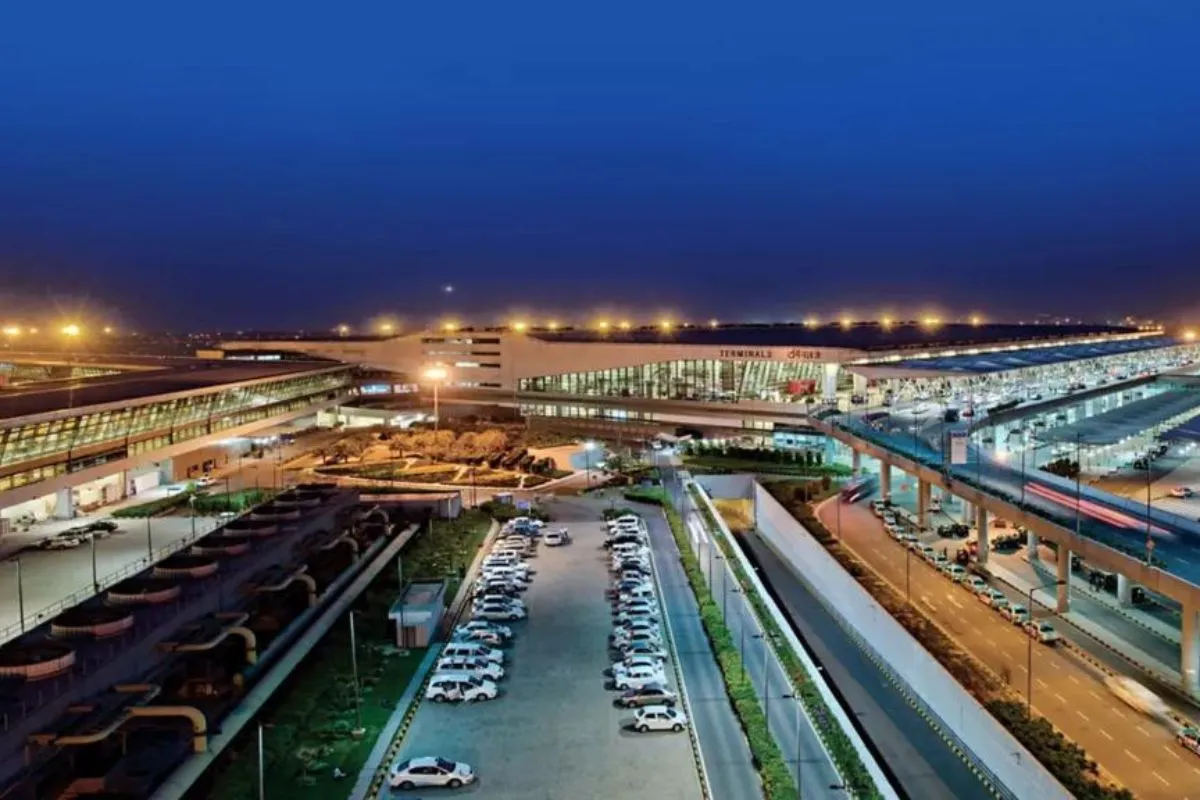
World’s Busiest Airports: Indira Gandhi Airport Delhi
Indira Gandhi International Airport (DEL) in Delhi, India, rounds out the top 10 busiest airports with a remarkable 72.2 million passengers in 2023. This marks a significant rise for DEL, reflecting India’s growing economic importance and expanding middle class. The airport serves as a major hub for several Indian airlines and connects passengers to destinations across Asia, Europe, and the Middle East. DEL is undergoing continuous modernization projects to handle the increasing traffic and solidify its position as a key aviation hub in Asia.
The world’s busiest airports are strategically located in major cities or transit hubs, making them easily accessible to large populations. For example, Atlanta’s Hartsfield-Jackson is within a 2-hour flight of 80% of the US population. Dubai International serves as a connecting point between the East and West. And London Heathrow is located just 15 miles from central London.
To handle hundreds of millions of passengers annually, the busiest airports invest heavily in state-of-the-art infrastructure. This includes multiple runways and terminals, automated baggage handling systems, and efficient security and immigration facilities. For instance, Dubai International has two terminals with a combined annual capacity of 90 million passengers.
The top airports offer direct or one-stop flights to destinations around the world. Atlanta provides service to more than 150 domestic and 75 international destinations. Dubai is home to Emirates, one of the world’s largest long-haul carriers, offering direct service to over 150 cities on six continents. This extensive route network and choice of airlines is a major factor attracting passengers worldwide.
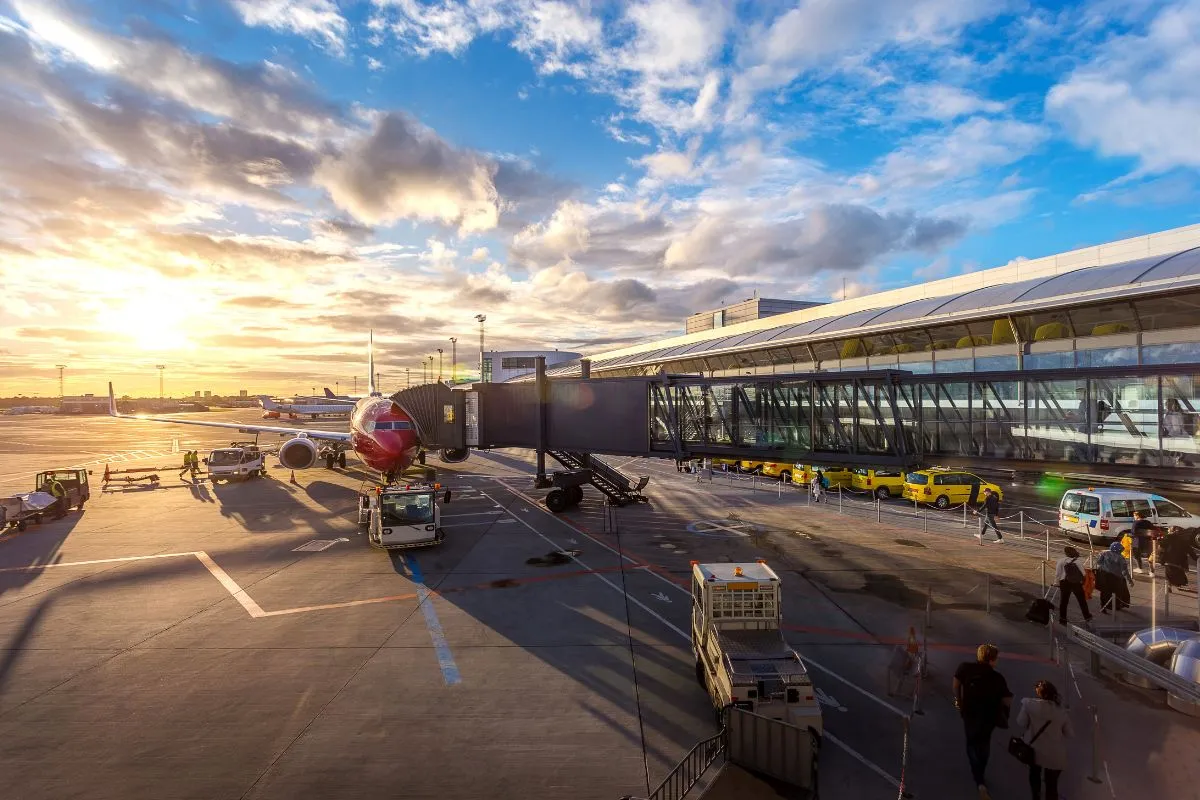
World’s Busiest Airports have advnaced infrastructure
While meeting today’s demands, the busiest airports also look to the future. They explore innovative technologies like biometric entry systems, solar-powered terminals, and sustainable aviation fuels to reduce environmental impact. For example, Dubai International aims to cut carbon emissions by 20% and have zero waste in landfills by 2023. Looking ahead, the top airports will continue adapting to shape the future of air travel.
Keeping up with hundreds of millions of passengers annually is no small feat. But with strategic locations, advanced infrastructure, global connectivity, and a future-focused mindset, the world’s busiest airports are well-equipped to handle whatever the future of air travel may bring.
The landscape of air travel is constantly evolving. Technological advancements promise faster check-in processes, biometric identification systems, and even autonomous baggage handling. Sustainability is also becoming a top priority, with airports exploring eco-friendly solutions such as biofuels for aircrafts and energy-efficient terminal designs.
Looking ahead, the airports on this list are likely to remain at the forefront of innovation, adapting to meet the ever-changing demands of travelers and the aviation industry.
Whether you’re a seasoned globetrotter or embarking on your first trip abroad, these top 10 busiest airports serve as vital gateways to the world. By familiarizing yourself with the layout and amenities of your chosen airport, you can ensure a smooth and stress-free travel experience. So, the next time you find yourself amidst the hustle and bustle of a busy airport, take a moment to appreciate the incredible logistics at play, the dedication of the airport staff, and the exciting journey that awaits you beyond the security gates.
This blog post has provided a glimpse into the world’s busiest airports, highlighting their dominance in passenger traffic and offering a glimpse into the complex world of airport operations. As the aviation industry continues to evolve, these airports stand poised to remain at the forefront of innovation and efficiency, shaping the future of air travel.
Since 2017, Saba Ghani has been serving as the talented and dedicated chief content writer for Pakistan Tour and Travel & EMHI Solutions. With her exceptional writing skills and in-depth knowledge of the travel industry, she has been instrumental in crafting engaging and informative content that captivates the audience. You can catch her at [email protected] or Twitter
Best Pakistan Tour Packages from Islamabad & Karachi